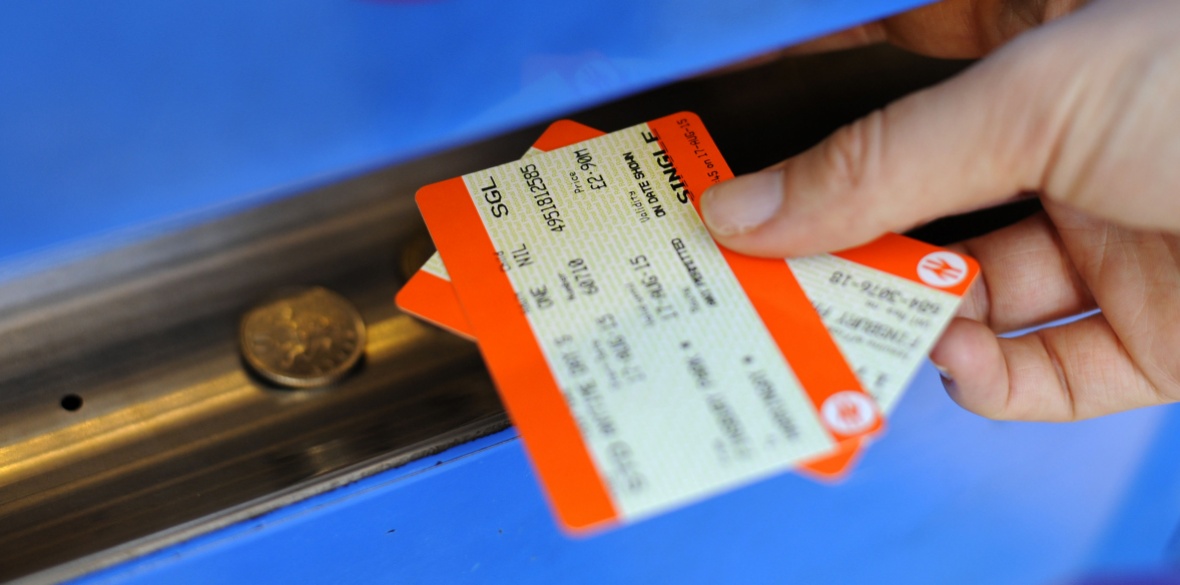This is the last article you can read this month
You can read more article this month
You can read more articles this month
Sorry your limit is up for this month
Reset on:
Please help support the Morning Star by subscribing here
COMMUTERS are spending almost £700 a year more on rail fares than they were under Labour, new figures published today show.
As fares rise by over a third more than wages, campaigners and trade unionists will picket dozens of stations across Britain this morning. They will hand out chocolates to sweeten the “bitter pill” of burgeoning private-sector profits.
Today’s fare rise is the biggest in five years. Season tickets will shoot up by 3.6 per cent, while wages are forecast to grow by only 2.6 per cent this year.
Labour said that the typical rail commuter will now be paying £2,888 for their season ticket, £694 a year more than in 2010.
The party compared costs in cash terms on over 180 routes between 2010 and today’s new prices.
The highest increase was for a Virgin Trains season ticket between Birmingham and London Euston, which has risen by £2,539 since 2010 and now costs £10,567.
The biggest percentage increase identified was between Tame Bridge Parkway and Nuneaton, a whopping 50 per cent rise since 2010.
And the cost of commuting from Theresa May’s Maidenhead constituency to London has risen by £732 since 2010, a 31 per cent increase from £2,360 to £3,092.
Shadow transport secretary Andy McDonald said: “The railways need serious reform that could be achieved if the Tories matched Labour’s manifesto policy to extend public ownership to passenger services, but instead ministers are persisting with a failed model of privatisation that is punishing passengers.”
The TUC’s Action for Rail campaign has calculated that a commuter on the average British salary would pay a staggering 13 per cent of their wages for a season ticket between Chelmsford and London.
This compares to just 2 per cent of an average French salary for a similar-distance commute to Paris. Commuters in Rome would cough up 3 per cent of their pay and Berliners 4 per cent. In Brussels and Barcelona, commuters would pay 5 per cent of their salary.
TUC leader Frances O’Grady said: “Many commuters will look with envy to their continental cousins, who enjoy reasonably priced journeys to work.
“Ultimately the government needs to take our railways back into public hands. That will stop hundreds of millions being siphoned off by private rail firms, and allow us to put passengers first.”
Meanwhile, in a separate analysis, rail union RMT found that fares have increased at five times the rate of public-sector pay awards, and at twice the speed of average earnings since 2010.
Workers employed on the government’s poverty-pay “national living wage” of £7.50 an hour could spend an average of 20 per cent of their pay on train tickets.
RMT general secretary Mick Cash said: “While the British passenger is being pumped for cash, the same private companies are axing safety-critical staff and security on our trains and stations.
“It’s a national scandal that private profit comes before public safety on our rail network.
“Even worse, with 75 per cent of Britain’s railways in overseas hands, it is the British people who are subsidising state-run rail operations across the continent.”
Today’s fare rise comes after the Star exclusively revealed on Friday that John Major’s government explicitly set out to “smash the unions” when preparing for privatisation in 1992.
Newly declassified government papers released to the National Archives reveal that this objective was considered a “priority” during a discussion between Mr Major and his advisers at Chequers.
Drivers’ union Aslef said private operators were now being “subsidised” to “drive up transport poverty” among the British people.
“Workers have missed out on real pay rises for years,” Aslef leader Mick Whelan said.
“These fare rises hurt the communities and industries that they should be supporting. And this is without even counting the scandalous cost of parking at certain stations.”
And TSSA general secretary Manuel Cortes added: “It’s all talk and no trousers when it comes to taking back control from the foreign companies who own large swathes of our infrastructure, including our railways.
“Money made out of passengers here is invested in fare subsidies there.”

 Conrad Landin
Conrad Landin









